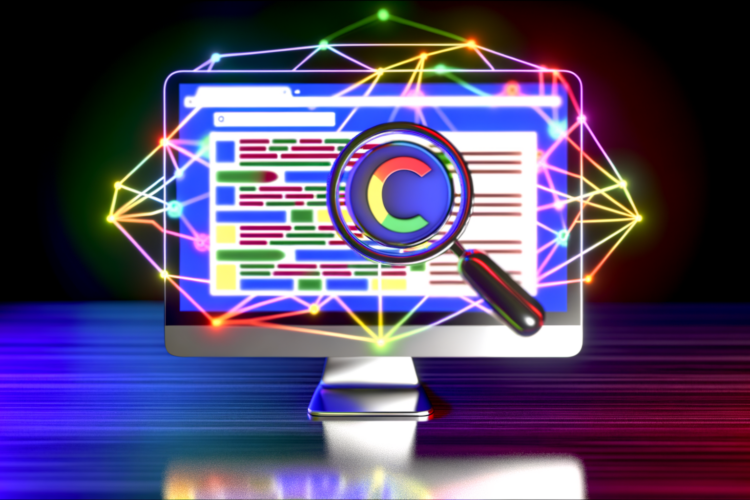
Optimizing your website for Google’s AI-driven search involves adapting to the latest advancements in machine learning and natural language processing that Google employs in their algorithms. Given that the artificial intelligence system behind Google Search, like RankBrain and the more recent BERT (Bidirectional Encoder Representations from Transformers), prioritize user experience and the relevance of content, your strategies should be focused on creating high-quality, user-focused content, improving technical SEO, and building a strong backlink profile.
Understanding Google’s AI and its Impact on SEO
Before diving into optimization strategies, it’s important to understand how Google’s AI affects search engine optimization (SEO). Google uses machine learning to better understand both the content of web pages and the intent behind user queries. This means the search engine has become more sophisticated at matching the information on your web page with what users are looking for, even when the search terms they use are vague or conversational.
RankBrain and User Experience Signals
Initially, Google introduced RankBrain, which uses machine learning to interpret search queries and measure how users interact with search results. RankBrain looks at signals like click-through rate (CTR) and dwell time to gauge the relevacy of results to search queries.
BERT and Understanding Natural Language
Following RankBrain, Google introduced BERT, which is designed to interpret the nuances and context of words in searches. With BERT, Google has become adept at understanding the intricacies of natural language, which helps the search engine comprehend the context of words within a question or content.
Creating Quality, User-Focused Content
Content is still king in the realm of SEO, and now, the focus is firmly on the quality and relevance of that content.
Utilizing Natural Language and Intent Optimization
In line with Google’s AI advancements, your content should be written in a natural, conversational tone, aligning closely with the user’s search intent. Rather than stuffing keywords, aim to answer questions your audience might have, providing comprehensive, authoritative, and credible content.
Structuring Content for Featured Snippets
Google often displays featured snippets—those box-like answers that appear at the top of some search results. To optimize for featured snippets, structure your content clearly, use headers to break it up, and provide succinct answers to common questions.
Entity-Based SEO
Entity-based SEO is about focusing on broad concepts and topics that Google recognizes as entities—people, places, and things. By structuring content around entities and topics, rather than just keywords, you can help Google understand your content’s context better.
Technical SEO and User Experience
AI-driven search doesn’t just look at content; it also pays attention to how users interact with your site.
Improving Site Speed and Mobile Usability
Google’s AI can interpret user behavior signals, like bounce rates and session duration, which are affected by how fast your site loads and how well it functions on mobile devices. Optimizing for speed and mobile usability is crucial in AI-driven SEO.
Enhancing User Engagement
It’s important to keep users engaged while on your site, thereby reducing bounce rates. This can be done by improving site navigation, providing interactive elements, and ensuring that each page offers value.
Structured Data and Schema Markup
Implementing structured data through schema markup helps Google’s AI understand the content on your web pages. It also allows for rich snippets, which can improve your site’s visibility in search results.
Building a Strong Backlink Profile
Backlinks remain an important factor in SEO, serving as trust signals for Google’s AI algorithms.
Creating Link-Worthy Content
To naturally attract high-quality backlinks, create content that is original, informative, and highly sharable. This will encourage other websites to link back to your pages, thus increasing your site’s authority.
Relevance Over Quantity
It’s not just about the quantity of backlinks; it’s the quality that matters. Google’s AI is proficient at deciphering the relevance and authority of links pointing to your site. Focus on obtaining backlinks from reputable sites within your niche.
Adapting to Voice Search and Conversational Queries
With the rise of voice search, optimizing for longer, more conversational queries is becoming more important. Make sure your content addresses the types of questions users might ask when speaking to a digital assistant.
Focus on Local SEO for Voice Search Queries
Many voice searches are local in nature, so ensure your local SEO is strong by maintaining accurate and comprehensive Google My Business listings, and local citations.
Incorporate FAQs into Your Content Strategy
FAQ sections are great for voice search optimization because they mimic the question and answer format of many voice searches. Provide clear, concise, and informative answers to commonly asked questions in your niche.
Staying Informed on Google’s AI Updates
Google continuously updates its algorithms and AI systems. Staying up-to-date with these changes is paramount.
Follow Reputable SEO Resources
Regularly follow reputable SEO news sources and Google’s announcements to stay informed about the latest changes in AI-driven search algorithms.
Use Analytics to Monitor User Behavior
Utilize analytics tools to monitor how users interact with your website. This data can offer insights into your content’s performance and how well your site aligns with AI signals.
Finishing Thoughts
Optimizing your site for Google’s AI-driven search can seem daunting, but focusing on high-quality, user-centric content, excellent technical SEO, and strong backlinks will set a solid foundation. Keep up with Google’s technological changes, adapt your strategies accordingly, and always prioritize your user’s experience. The convergence of SEO and AI is about understanding and enhancing how users find and interact with your content, ensuring that your site is not only AI-friendly but user-friendly as well.
Frequently Asked Questions
What is Google’s AI-driven search?
Google’s AI-driven search refers to the search engine’s use of artificial intelligence technologies, such as machine learning and natural language processing, to understand and predict user search intent, deliver more relevant results, and enhance the overall search experience.
Why is it important to optimize my website for Google’s AI-driven search?
Optimizing your website for Google’s AI-driven search is important because it helps you align with how Google interprets and ranks content, which can improve your website’s visibility, increase organic traffic, and ensure you’re effectively reaching your target audience.
What are some key methods to optimize for AI-driven search?
To optimize for AI-driven search, focus on creating high-quality and relevant content, using structured data, enhancing user experience (UX), increasing website speed, ensuring mobile-friendliness, and optimizing for voice search.
How can I create content that aligns with AI-driven search algorithms?
To create content that aligns with AI-driven search algorithms, research user intent, incorporate relevant and semantically related keywords, maintain a natural writing style, and cover topics comprehensively. It’s vital to keep your content updated and authoritative to establish trustworthiness.
What is structured data, and how does it impact AI-driven search?
Structured data is a standardized format for providing information about a page and classifying page content. By adding structured data to your website, you help Google’s AI algorithms understand the context of your content, which can enhance the appearance of your pages in search results with rich snippets and improve indexing.
Can improving user experience (UX) help with AI-driven search optimization?
Yes, improving user experience (UX) can significantly help with AI-driven search optimization. Google’s algorithms consider user engagement signals such as click-through rates, time on site, and bounce rates. A positive UX can improve these signals by providing a more satisfying interaction for users, which is rewarded by the search engine.
Does website speed affect my rankings in AI-driven search?
Website speed is a crucial factor for AI-driven search rankings. Google aims to provide the best user experience, and fast-loading websites contribute to this objective. Slow websites can negatively impact user engagement metrics, which, in turn, can lead to lower rankings.
How important is mobile-friendliness for Google’s AI-driven search?
Mobile-friendliness is extremely important for Google’s AI-driven search. With the majority of searches happening on mobile devices, Google favors websites that offer a seamless mobile experience. This includes responsive design, touch-friendly navigation, and quick loading times on mobile networks.
What role does voice search optimization play in AI-driven search?
Voice search optimization is becoming increasingly important with the rise of virtual assistants and smart speakers. To optimize for voice search, focus on conversational keywords, create content that answers specific questions, and aim for featured snippet placement as voice search often reads out information from these snippets.
How often should I reevaluate my website’s optimization for AI-driven search?
SEO is an ongoing process, and it’s recommended to regularly reevaluate your website’s optimization as Google frequently updates its algorithms. Keep abreast of AI trends and algorithm changes, and consider conducting an SEO audit at least once a year or when significant drops in traffic occur.
Are backlinks still relevant with Google’s AI-driven search algorithms?
Yes, backlinks remain a significant ranking factor even in the age of AI-driven search. Quality backlinks from reputable websites are seen as endorsements of your content’s credibility and authority. Nonetheless, the focus should be on earning high-quality backlinks naturally rather than pursuing artificial or spammy link-building tactics.
Can I measure the effectiveness of my optimizations for AI-driven search?
Measuring the effectiveness of optimizations for AI-driven search involves tracking changes in your search rankings, organic traffic, click-through rates, conversion rates, and user engagement metrics. Tools like Google Analytics, Google Search Console, and various SEO platforms can facilitate this tracking.






